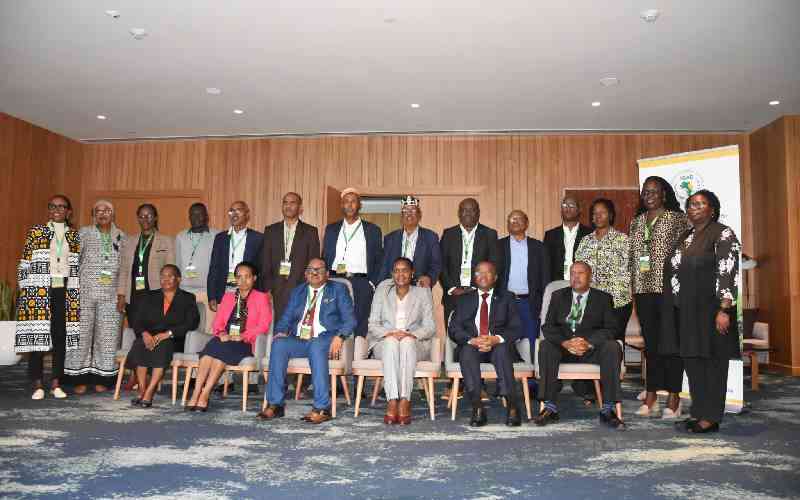IGAD urges member states to honour 10 per cent agriculture budget pledge

The Intergovernmental Authority on Development (IGAD) has urged its member states to honour a regional commitment requiring them to allocate at least 10 per cent of national budgets to agriculture.
This, according to IGAD, was agreed under the Comprehensive Africa Agriculture Development Programme (CAADP) and reinforced in the Malabo Declaration.
An ongoing review of IGAD’s Regional Agricultural Investment Plan (RAIP) identified, as a major challenge, the failure of most of its members to honour the commitment that would help achieve food security in the region.
Speaking during the three-day review event that began on Monday in Nairobi, the experts said that while the plan has shown strong alignment with continental frameworks and relevance to regional needs, significant gaps still remain among them being implementation.
“We have the policies, we have the strategies, but implementation falls short," remarked Dr Mohyeldeen Eltohami Hamed, IGAD Director for Economic Cooperation and Regional Integration.
The validation, according to Eltohami, is crucial as its implementation would see efforts escalate towards ensuring food insecurity in the Horn of Africa.
RAIP, mooted between 2016 and 2020, he said, had been disrupted by severe droughts, climate change, the COVID-19 pandemic, desert locust invasions, and regional conflicts.
According to the experts, RAIP focused on four investment priority areas including sustainable natural resource management and agricultural productivity,
It was also envisioned to ensure intra-regional trade and infrastructure development, and knowledge and technology-driven innovation.
The flow of food within the IGAD region, the experts noted, is impeded by poor infrastructure and limited economic integration. Despite food surpluses in countries like Uganda and Kenya, logistical and political barriers prevent timely distribution to deficit areas such as Somalia.
They observed that the implementation has also been disrupted by conflicts that often see funds meant for agricultural projects diverted to other areas.
“The plan aimed to reach farmers directly by strengthening services and enabling local markets to function better,” said Dr. Senait Regassa, Project Coordinator of the IGAD Food System Resilience Project.
She said implementation of the programme will see support farmers in production even as she highlighted the challenges posed by instability that consequently affect food insecurity.
One of the key findings praised IGAD’s efforts in climate change management and transboundary water resource governance. Regions like Turkana and Karamoja, prone to drought and water scarcity, have benefited from cross-border resource collaboration. However, the report points out that most interventions rarely reach the grassroots level—especially smallholder farmers and pastoralists who are the intended beneficiaries.
Stay informed. Subscribe to our newsletter












